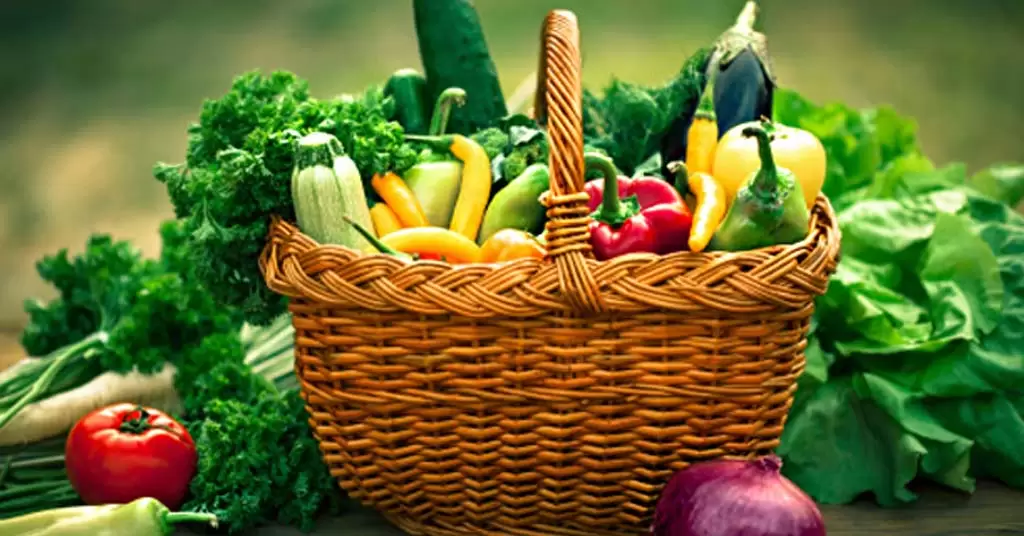Organic food is a type of food consumption that is both natural and ecological, and has become a trend lately.
Organic products are very healthy and bring many benefits. However, their high price puts them at a disadvantage compared to conventional foods. Interested in knowing more? Fortunately, from Greenuso we have prepared this post to teach you everything about it.
What is organic food?
Organic food, also called ecological or biological, is that which has been produced following natural procedures. That is to say, dispensing with synthetic substances and methodologies such as the genetic modification of species.
These products must comply with a series of parameters or standards to be certified as organic. In general, throughout the chain of production of these foods:
- Only natural fertilizers can be used.
- No preservatives or additives are added.
- The use of synthetic pesticides is not allowed.
- No growth hormones, anabolics or antibiotics are applied to animals.
- No genetically modified organisms are harvested or bred.
- No X-ray or similar radiation methods are used.
- Animals raised are fed organic food.
Agricultural products (vegetables, fruit, meat, etc.) and processed products (dairy, cereals, oils, etc.) are available at the market and are completely organic. To distinguish them from the rest, they are usually identified with a seal or label that certifies them as organic.
Differences between organic and conventional food
There are several differences between organic and conventional foods. Some of them are:
Inputs and methodologies used
No pesticides or artificial fertilizers, additives, preservatives or other synthetic substances may be used in organic food production. This is not the case for conventional products, in which case it is allowed to use these chemicals according to established standards.
On the other hand, the conventional agricultural sector uses the benefits of genetic engineering to obtain greater productivity.
The organisms are genetically modified to make them more resistant, nutritious, productive, adaptable to the environment and more. However, on organic farms, transgenic animals and plants have no place because they are not really natural.
Similarly, certain methodologies such as x-ray radiation or ultraviolet light are not used in the organic sector. On the contrary, many conventional food producers do use them.
Nutritional contribution
We know the importance of nutrients such as vitamins, proteins, lipids, minerals, among others. But are organic foods more nutritious or healthier than conventional foods? There is not really a scientific consensus on this.
On the one hand, in 2009 a systematic review of more than 52,000 scientific articles on the subject was carried out. This work, entitled Nutritional quality of organic foods: a systematic review, concluded that organic foods are just as nutritious as the rest.
Similarly, another review of 240 articles in 2012, Are organic foods safer or healthier than conventional alternatives?: a systematic review, came to the same conclusion.
In this case, it was also determined that organic foods contain less pesticide residues and bacteria resistant to antibiotics. It should be noted that the levels of pesticides in conventional foods are within safe limits.
Other research states that organic foods are more nutritious compared to the rest. This is the case in the study entitled Higher antioxidant and lower cadmium concentrations and lower incidence of pesticide residues in organically grown crops: a systematic literature review and meta-analyses, published in 2014
This review of 343 articles argues that organic products contain more antioxidants but lower concentrations of pesticides and Cadmium (a toxic metal).
The price
Organic foods are more expensive than conventionalfoods for several reasons:
- The demand for organic products exceeds their supply.
- They require more labour per unit of production.
- The distribution and commercialization chain of these products is somewhat inefficient compared to that of conventional foods. Since they are produced in a relatively small quantity, their transport and distribution is more costly.
Benefits of organic food
The benefits of organic food are:
- They help to preserve the environment, as no synthetic pollutants such as nitrogen fertilizers are used in their production.
- They protectthe health of the producer, the trader and the consumer as they are free of pesticides, bacteria resistant to antibiotics and chemicals that could be harmful.
- Theycontribute to maintaining biodiversity because they come from non-genetically modified organisms.
- They provide sufficient vitamins, minerals, proteins, carbohydrates and other nutrients. Some studies claim that they have greater nutritional value than conventional foods.
Now that you know all about organic food, you are probably ready to enjoy all its benefits. If you want a more natural, healthier diet with excellent nutritional value, you know exactly which foods you should eat.

